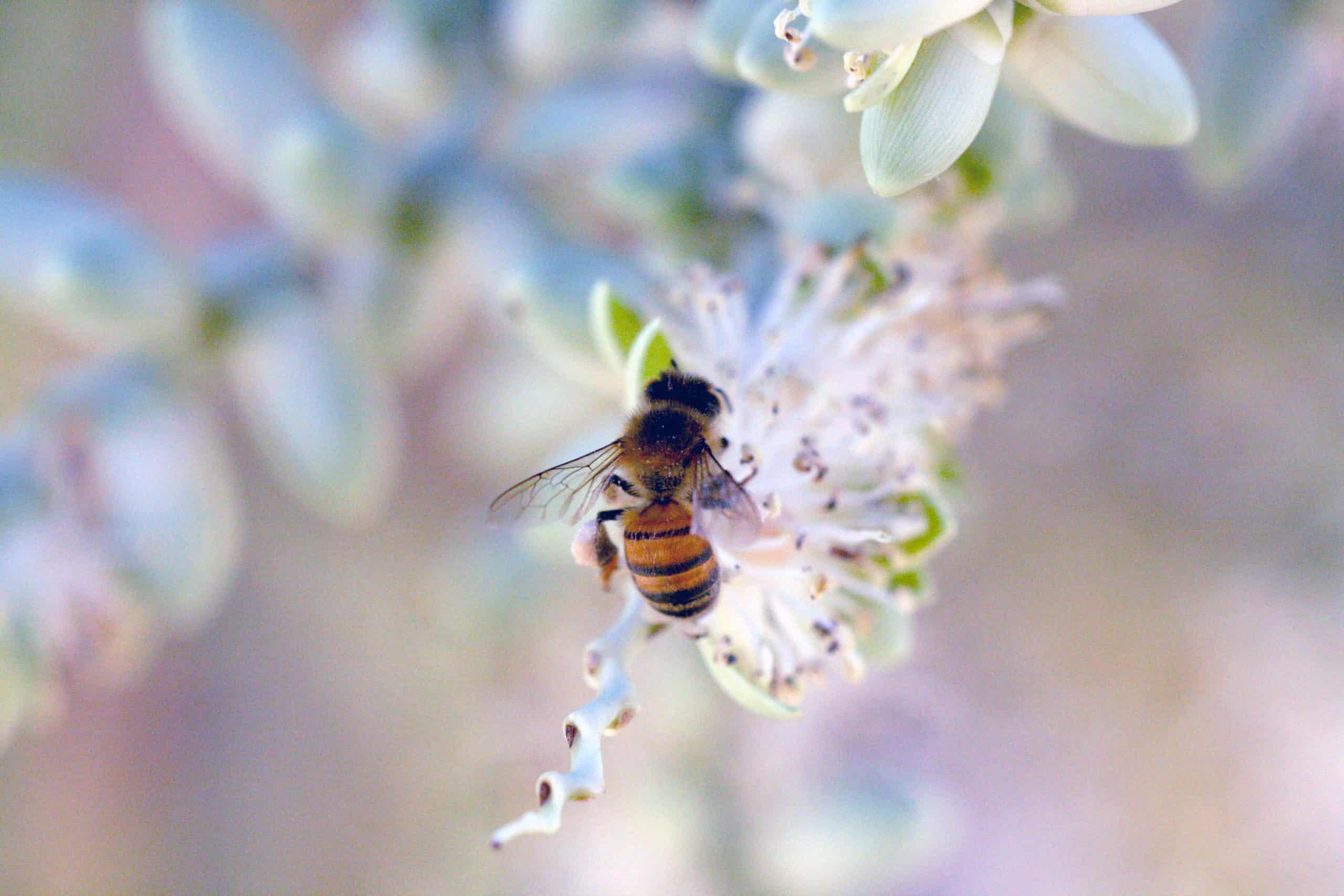OUR RELATIONSHIP WITH BEES
OUR RELATIONSHIP WITH BEES!
What role do bees play in our daily lives and the industry?
As we are battling with issues of the environment and sustainability in the last few
years, we have witnessed the decline of the bee population. Bees are one of the
most important creatures in our ecosystem. They are vital for the pollination of plants
that provide an estimated one third of our food production and they support the
growth of trees, flowers, and other plants, which serve as food and shelter for
creatures large and small.
What else do bees do?
Apart from honey, bees make beeswax from special glands in their bodies, they
collect pollen & mix it with honey to make bee bread to feed their babies. They
collect resins and sap from trees and mix it with saliva, secrete the wax from the
underside of their abdomens, and then use the beeswax to construct a honeycomb.
For each pound of beeswax provided by a honeybee, the bee visits over 30 million
flowers. To produce one pound of wax requires the bees to consume about eight to
ten pounds of honey.
Bees are worth around £700m to the British economy and they maintain our
beautiful and diverse environment. Unfortunately, the increasing use of pesticides
and climate change temperatures has been causing a decline in their population.
We extract beeswax from the honeycomb, it is the purest and most natural of all
waxes. This biproduct hugely benefits the beauty industry, beeswax is typically found
in use of lip balms, mascara, moisturizers, lip glosses, hand creams, concealers,
anti-aging, waxes and many other skin care products.
As part of our commitment to our ethical and sustainability agenda, we help support
bee populations and protect their colonies by donating our excess sugar syrup to
local beekeepers. Our pure sugar syrup mixed with water provides an excellent
alternative source of food when it is too cold outside to travel to find nectar and
produce honey. Beekeepers can use sugar syrup as a substitute to stop their hives
from starving. We are immensely proud that our local Northamptonshire Beekeepers
Association have its apiary thriving. The bees love the sweetness of our syrup!
‘What we take from the environment we should give back to the environment’
How can you help?
Planting bees’ favourite flowers will make your garden a haven for bees and colourful too.
Common Poppy, Lavender, Foxglove, Nasturtium and Evergreen Clematis are a few
that you can plant to help sustain the bee population.


